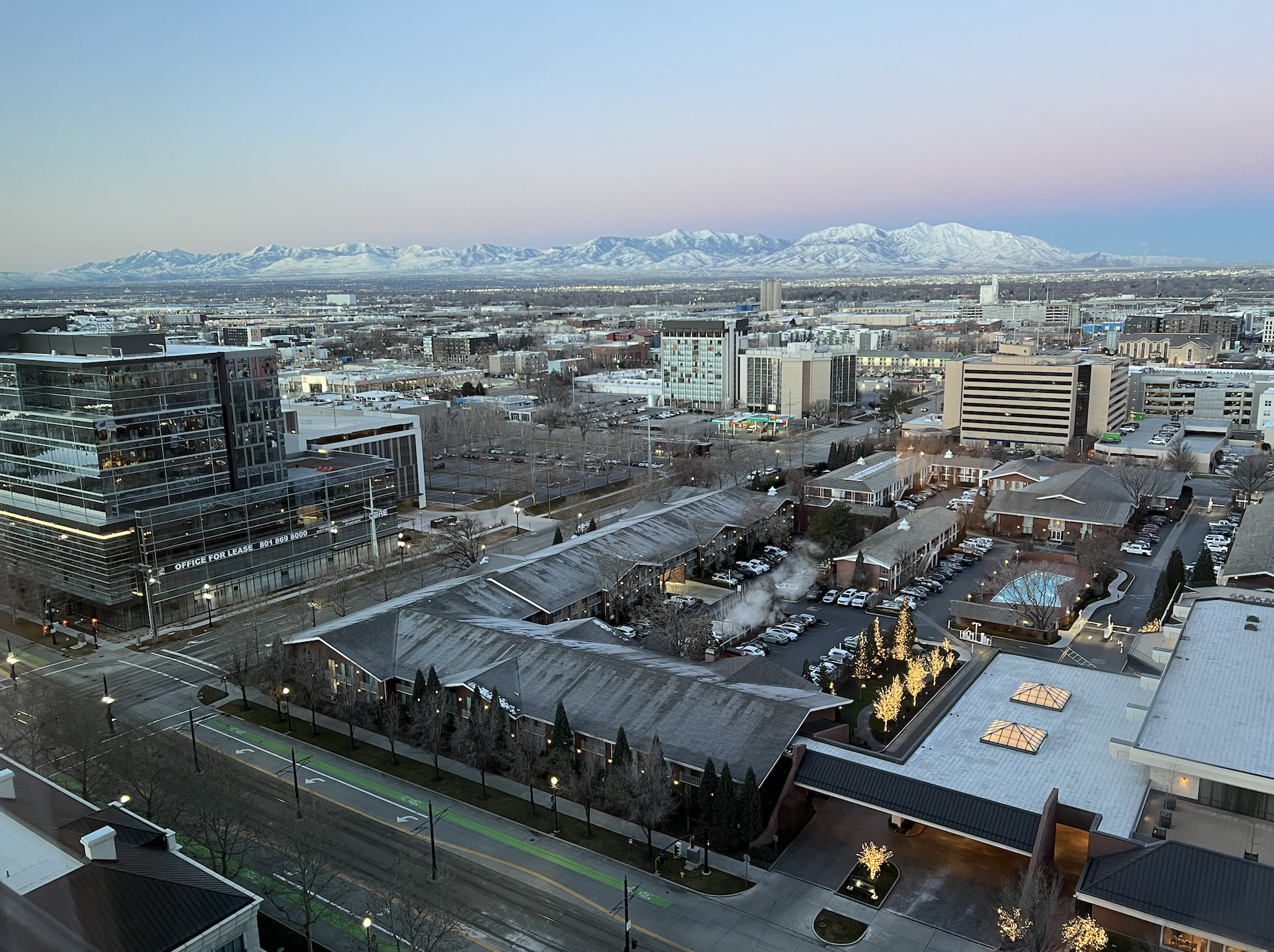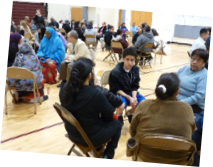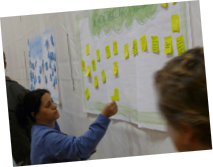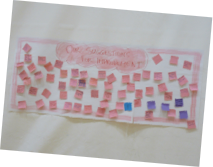I appreciated this topic for our monthly local Participative Leadership Practitioners Circle (PLPC), co-hosted last week by Ben Mates and myself. Complimentary Currencies is a body of work Ben has been supporting and exploring in the Salt Lake Valley.
As always with this group, we have a simple, deliberate format. The topic invitation is sent in advance so that people can choose to participate. We sit in a circle. The group has been 6-16 people. I usually offer a bit of context for the process and specifically for the evening. We check-in with a bit of voice from everyone. We give our attention and curiosity to the topic for the evening. We harvest some of the learning. We close with deliberateness. Good simple process for tapping intelligence in the group.
Ben’s description for the invitation was this:
The way we use currency to exchange and circulate wealth is often unconscious. We rarely consider that there might be alternative means of facilitating this exchange/circulation. I’m interested in convening conversations where we examine the often-unconscious assumptions around money and begin to explore alternative currencies that could offer healthier ways to be in relationship with each other and the world that gives us life. How can I best engage people and invite them to explore?
This was a great night of learning for me. Ben offered some framing about how money is energy and his focus is on creating alternative ways for energy to move and flow in a society. We played a couple of games to get this point. And then we played an additional game to help see some of our own patterns and beliefs in relation to money, things, exchange. The conversation that followed was very stimulating to me. Deep. Reflective. Thoughtful. Not surprising — this is what I know in how Ben is in the world. He is one of the good challengers and paradigm shifters that I know.
One part of the game had us naming for ourselves something that has three qualities (and energy). 1) what you like to do, 2) what you are good at, and 3) what people value. I found this particularly valuable to notice these things and notice that these becomes currencies that we can offer to each other. Nice. There is a spirit to it. That helped me to see more of that.
For those interested there are many further resources to stir the thinking.
-Ben has an article pending publication in Catalyst Magazine (benjmates@att.com)
–An article by Michel Bauwens on post-capitalism (thanks to my friend Ria in Belgium)
-Several books by Bernard Lietaer: The Future of Money; The End of Money and the Future of Civilization, New Money for a New World (search for these on Google or Amazon)
-Several Books also by Charles Eisenstein: The Ascent of Humanity is particularly good I found.
Thanks Ben, all.


 We then moved our evening into two rounds of cafe style questions. The first, inviting participants to share stories with one another about what they appreciate in this community, and what they know is a challenge. We harvested these. The second round was an invitation to share suggestions for improvement. Again we harvested these.
We then moved our evening into two rounds of cafe style questions. The first, inviting participants to share stories with one another about what they appreciate in this community, and what they know is a challenge. We harvested these. The second round was an invitation to share suggestions for improvement. Again we harvested these. This is a fundamental principle of working in living systems. We created the format for interaction — in play and in conversation — that can create conditions for well and thriving community. And it was a lot of fun.
This is a fundamental principle of working in living systems. We created the format for interaction — in play and in conversation — that can create conditions for well and thriving community. And it was a lot of fun.

